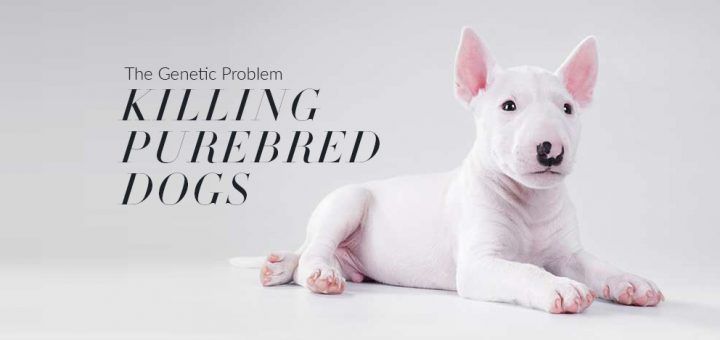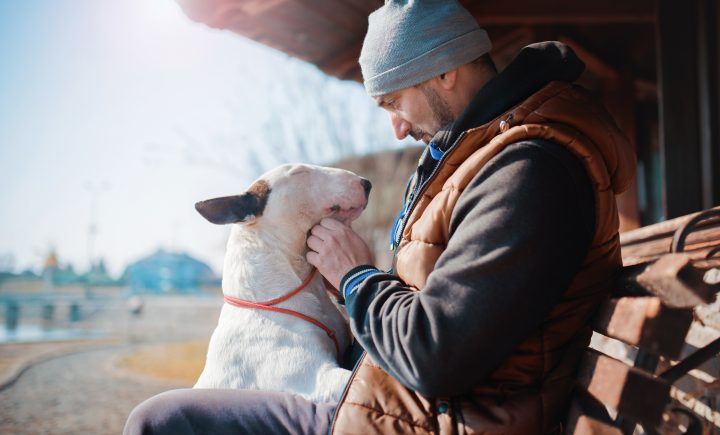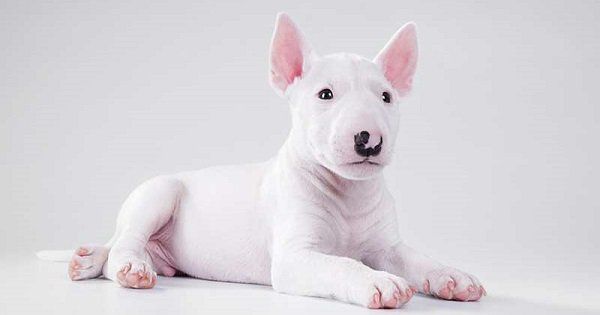The days of the purebred dog are numbered "“ starting with the English Bull Terrier.
By Justyne Yuen-Lee

I didn't really like English Bull Terriers when I first saw pictures of them. To me, they seemed like, as one of my friends once described, "muscular bullets". Once I started to delve deeper into the Internet dog world, however, I learned to appreciate the beauty in these gorgeous egghead doggies.
Advertisement
Unfortunately, these may be the final days for this breed.
Canine genetic researchers have identified a genetic mutation called Lethal Acrodermatitis (LAD). Bull Terriers with LAD have problems growing, deficiencies in their immune systems, and develop skin lesions on their paws. Although researchers have identified the mutation, there is no real solution to maintain this breed.

The Only Solution is to Stop Inbreeding
This is news we may not want to hear and probably not the path we're going to take, but it's reality.
According to a research paper published in PLoS Genetics, LAD is an autosomal recessive disease. This means that it can occur on any chromosome and for expression, it requires two copies (one from mother and one from father). This means that it can hide for generations.
When there is a demand for a certain breeds, breeders need to produce a litter from two dog parents that are certified and registered as pure breeds. This specificity designates a small gene pool to begin with, which perpetuates the genetic dangers for this breed.

Photo: Instagram / @moosetheminibully
Advertisement
Consider humans having children with relatives "“ weird, right? "“ it's not just weird, but also illegal in many regions. The laws have been created to discourage inbreeding because it can cause birth defects due to higher probability of two mating individuals carrying a recessive trait (one that is hidden). If, for example, siblings both carry a deleterious recessive gene, they have a 25% chance of passing it to their offspring when they are mated together.
This is the problem the Bull Terrier is having. In fact, 60% of the known population carries the LAD gene. This breed also has higher rates of heart and kidney disease, breathing problems, deafness, and knee issues.

Photo: Instagram / @samthebully
Attempts at preventing these issues, such as only breeding the healthy ones, don't help. The healthy dogs may only be a phenotype (i.e. what you can see) while the genotype has the bad genes hidden. All it takes to create unhealthy pups is to mate with another phenotypically healthy dog that also carries the recessive genes.

Photo: Instagram / @samthebully
It's not just the Bull Terriers at risk; Purebred Dobermans have heart problems, Bernese Mountain Dogs are prone to hip dysplasia (and more likely to die of certain cancers), and the Norwegian Lundehund is at the brink of extinction due to an accumulation of bad genes.

From this standpoint, mutts have the advantage in terms of health and longevity. Should we continue breeding purebred dogs? Let us know your thoughts.

